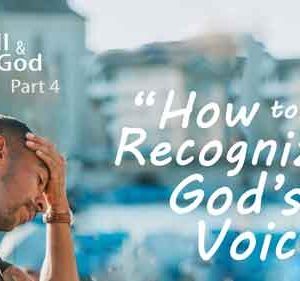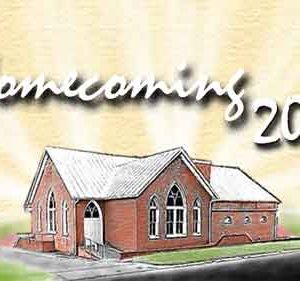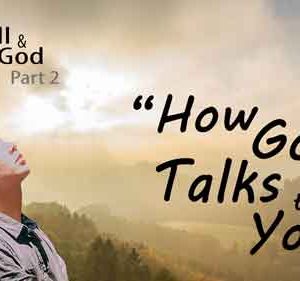Being Thankful in Stressful Times
“Being Thankful in Stressful Times”
Pastor Jerry
Philippians 4:4-8
————————————- Message Synopsis ————————————-
The past two years has been the cause of so much stress in the lives of so many people. More than a year and a half ago, the World Health Organization declared COVID-19 a global pandemic. Millions went home to shelter in place for what they thought would be a few weeks.
But, after continuing for a year, more than 500,000 U.S. residents died from the coronavirus. While at the same time, the nation also grappled with racial injustice, a brutal election cycle and civil unrest. The doors were once again opened and we began to believe that the pandemic was over. But that was not the truth.
In the summer of this year the American Psychological Association issued a warning about the impact of the stressful events of the pandemic. They warned that Americans faced a second pandemic — one that would persist even after the physical threat of the virus has been addressed. Most adults have indicated that their physical health is declining due to the stresses of the pandemic. These health stressors will likely lead to societal consequences, chronic illness & additional strain on the nation’s health care system.
Now, after more than 18 months of the pandemic there have been 765,320 deaths in the US. In fact, until the vaccinated numbers rise, there seems to be no real indication that the pandemic will end. In the midst of this uncertainty—fighting and unbelievable unrest is rampant.
So, how do we maintain mental and spiritual well-being in this stressful, unpredictable time? I want to talk about that this morning.
There’s a well known stress scale called the Holmes Stress Scale which lists the 100 most stressful events you can have in life. On the scale they have discovered that the single most stressful time of the year is the period between Thanksgiving and New Years. You worry about all kinds of problems that happen with shopping, and gifts, and money. And now with the complications of the pandemic the stress level this year goes through the roof. Stress is a real serious concern in our world and in our lives today.
This week is Thanksgiving. How do you be thankful in stressful times?
In Philippians 4, Paul says, “May you always be joyful in your life in the Lord.” Is that possible? Is it possible always to be joyful, no matter what the circumstance? Yes it is.
Today I want to share with you a strategy for surviving stress. It’s found in our Scripture reading today. In that very short passage we have the four keys to surviving stress.
Step One: Worry about nothing
Step Two: Pray about everything
Step Three: Thank God in all things
Step Four: Think about the right things
- WORRY ABOUT NOTHING
V. 6 “Don’t be anxious about anything.” That’s easier said than done. We not only have pandemic worries, but we’re confronted with global worries. On the TV news we hear the headlines shouting details of shootings, climate changes, hospital crisis, nuclear weapons, worker shortages and price increases! It’s no wonder you’re stressed out.
But the Bible says, you need to “worry about nothing.” Here are some facts about worry:
a study discovered that 40% of your worries never happen. 30% of your worries concern the past. So you can’t control the past and 40% aren’t even going to happen so 70% of your worries are worthless. 12% of your worries are needless health concerns. 10% of your worries are insignificant and petty issues. Only 8% of your worries are actual, legitimate concerns (according to the study).
What I suggest you do for those 8% is do what Jesus said do. Matthew 6:34 “Therefore do not worry about tomorrow for tomorrow will worry about itself. Each day has enough troubles of its own.” The key to reducing stress in your life is live one day at a time. Live today by giving your day over to Jesus. Just focus on Him. Worry about nothing.
It’s interesting that when Paul wrote this scripture he was in prison saying, “Don’t worry about anything.” Anytime God says “eliminate this from your life,” He adds something in and that’s the second step.
- STEP TWO: PRAY ABOUT EVERYTHING.
“In everything by prayer and petition with thanksgiving, present your requests to God.” You say, “I don’t have time to pray.” If you have time to worry then you’d have the time to pray.
Paul says “in everything.” Not just some things but everything. Some people think God only cares about religious things. God is interested in every detail of your life. Pray about everything! There is nothing insignificant to God. 1 Peter 5:7 “Unload all your worries on Him since He is looking after you.” We have to learn to unload our problems instead of worrying. Prayer is a tremendous release valve. “How do you handle stress?” Turn it over to the Lord. Let God have your worries. Learn to unload your stress through prayer. Paul says if you want to relieve stress here’s what you do: Worry about nothing and pray about everything. Simple, but it’s something that you have to learn over and over.
- THIRD STEP: THANK GOD IN ALL THINGS
Paul says, “When you pray, pray with thanksgiving.” … “Always asking Him with a thankful heart.” Whenever you pray, you should always pray with thanksgiving. Do you know that the healthiest human emotion is gratitude. Gratitude actually makes you more resistant to stress and less susceptible to illness. It’s the healthiest emotion. People who are grateful are happier. So if you cultivate the attitude of gratitude, of being thankful in everything, it reduces stress in your life. That’s why the old song, “Count Your Blessing, Name Them One By One” is such an encouragement to people.
Be thankful in all things. 1 Thessalonians 5:18 “Give thanks in all circumstances for this is God’s will for you in Christ Jesus.” It’s most important to keep from misinterpreting this verse. It does not say “Give thanks for every circumstance.” It says give thanks in every circumstance. Not for every circumstance. What’s the difference? Even out of bad, God can bring good. In every circumstance, no matter how bad it is, you can give thanks to God because (1) I know He has a purpose bigger than the problem and (2) He will give me the power to overcome the problem, and (3) I will grow through the experience if I allow it to help me grow. In every circumstance! Even in the evil that happens in the world I can be thankful because I know God is greater than the problem.
In everything give thanks. Gratitude is a stress reliever because it gets your eyes off the problem and puts it on the positive things in your life. This is what the Bible teaches: I worry about nothing. I pray about everything. I give thanks for all things.
- STEP FOUR: I THINK ABOUT THE RIGHT THINGS
“Finally brothers, whatever I true, noble, right, pure, lovely, admirable, if anything is excellent or praiseworthy, think about such things.” The fourth point is this: If you want to reduce the level of stress in your life, you must change the way you think.
Whatever you put in your brain is what’s going to come out. It’s like a computer. Garbage in, garbage out! The way you think determines the way you feel. And the way you feel determines the way you act. So if you want to change your life, you need to change what you’re thinking about. If you’re watching television more than you’re reading the Bible, then what’s going into your mind?
The Bible says think about the things that are true, noble, right, lovely, admirable. Does that describe the typical movie? No! It involves a deliberate conscious choice where you change the channels. You choose to think about the right things. Focus on the positive and on God’s word. Why? Because the root cause of stress is the way I choose to think.
Why is it that you can take two people, put them in the exact same circumstance? One of them is blown away and they fall apart, collapse emotionally. The other handles it with no problem, unruffled feathers. Obviously, the problem is not the circumstance. It’s one’s response. If you want to become like Christ, you think about Him. Fill your mind with good things.
What is the result of doing these things? What is the results if you: Worry about nothing, pray about everything, thank God in all things, keep my mind on the right things.
What’s the result? V. 7 “If you do this you will experience God’s peace which is far more wonderful than the human mind can understand. His peace will keep your thoughts and your heart quiet and at rest as you trust in Christ Jesus.” What a guarantee–peace of mind. That’s what everybody is looking for? Peace!
It’s amazing the things people will try in order to find peace of mind. They run from one thing to the next, looking for peace of mind. The Bible says that God’s peace is a gift to you. And it can’t be explained and it can’t be duplicated and it can’t be fabricated. It’s a gift. How do I get that kind of peace?
The key is the last phrase of that verse. “As you trust in Christ Jesus.” It’s a relationship.
The Bible says it’s only for those who have a relationship with Christ, who put their faith and trust in Him. If you haven’t done that yet, I would encourage you to do so today.
What’s got you worried this morning? The pandemic? Your health? Your finances? Your situation? If you’ll take the steps we just talked about this morning and let Jesus Christ become the center of your mind and the center of your life, He will change your life …and you will find a peace you could not imagine possible. Come to Jesus now …with Thankfulness!










